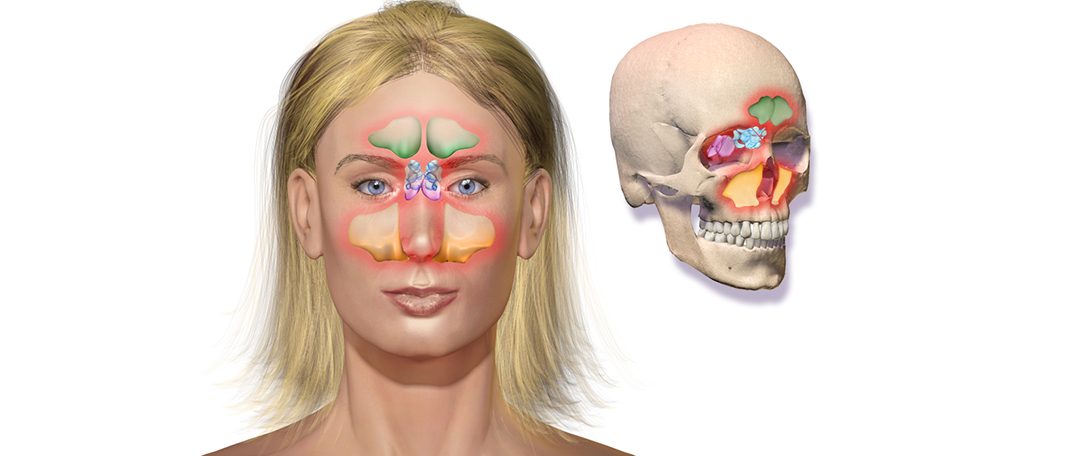Sinusitis is a swelling or an inflammation of the tissue blocking the sinuses. Approximately 31 million Americans report sinus infection, medically known as sinusitis or rhinosinusitis, according to American College of Allergy, Asthma & Immunology reports. Read further to learn more about symptoms of sinusitis and treatment.
What is Sinusitis?
Sinusitis is a common condition, often referred to as inflammation of the paranasal sinuses. It causes sinuses to get clogged and filled with fluid. Sometimes,it is caused by bacteria, allergies, or cold, leading to mucus that results in blockage in the openings of the sinuses which are hollow openings in the bones. They protect against dust, bacteria, allergens, and pollutants. Sinuses are tiny air pockets located in the back of the forehead, nose, cheekbones, and in between the eyes. Healthy sinuses are packed with air. If they are blocked with germs, fluid can cause an infection.
What Causes Sinusitis?
Sinusitis infections occur when fluid builds in the air-filled pockets in the sinuses, allowing germs to develop. Bacteria can cause sinus infections. Here are specific causes of sinusitis
- The common cold
- Polyps
- Seasonal and nasal allergies
- A deviated septum
- Weak immune system
- Smoking
Sinusitis Signs and Symptoms
- Pain and swelling around your eyes
- Blocked or stuffy nose
- Decreased sense and smell
- Nasal inflammation
- Runny nose
- Sore throat
- Fever
- Facial tenderness
- Caugh
- Pain in sinuses
- Fatigue
What Are the Stages of a Sinus Infection?
Acute sinusitis: It is similar to cold-like symptoms including-runny, including stuffy nose, and facial pain which can last between 2 to 4 weeks
- Subacute sinusitis symptoms last for 4 to 12 weeks
- Chronic sinusitis signs and symptoms may last for 12 weeks or more.
- Recurrent sinusitis occurs many times in a year.
- You may hear your doctor use these terms
When to See a Doctor?
If you feel tenderness in your nose and face, the physician will examine the inside of your nose. The treatment will rely on the findings of the physical examination. If you are experiencing above said symptoms for more than 10 days, you should visit your doctor.
For a simple sinus infection, a doctor would recommend you to use a decongestant and saline nasal washes.
Treatments for Chronic Sinusitis:
Nasal corticosteroids – Nasal sprays can help treat inflammation including—fluticasone, triamcinolone, budesonide, mometasone, and beclomethasone.
Saline nasal irrigation – with nasal sprays or solutions, irritants and allergies can be treated.
Oral or injected corticosteroids – It is mainly used to relieve inflammation because of severe sinusitis.
Allergy medications – Doctors may recommend this medication for allergies causing sinusitis.
Aspirin desensitization treatment – If you experience reactions to aspirin causing sinusitis, under medical supervision the larger dose of aspirin given to you is based on your tolerance.
Antifungal treatment- Infection due to fungi.


















